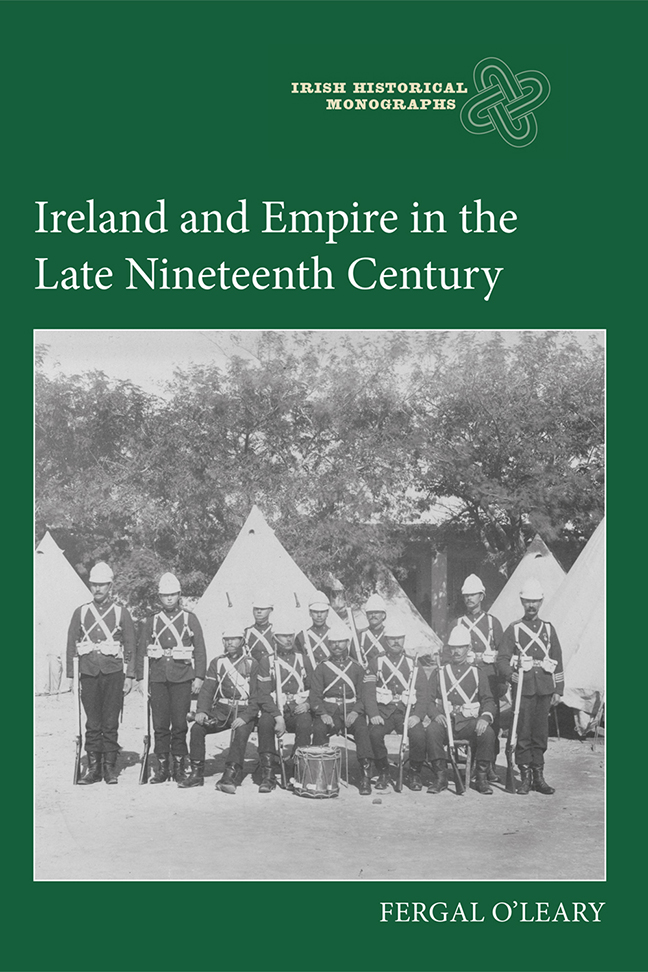Summary
Nothing in the history of the world is more wonderful than that under the flag for
these two little islands there should have grown up the greatest and most beneficent
despotism in the world, comprising nearly two hundred and thirty millions of
inhabitants under direct British rule, and more than fifty millions under British
protectorates; while at the same time British colonies and settlements that are scattered
throughout the globe number not less than fifty-six distinct subordinate governments.
– W. E. H. Lecky, Nov. 1893.Speaking at London's imposing Imperial Institute in November 1893, W. E. H. Lecky, at that time Ireland's most influential historian, barely contained his enthusiasm and admiration for the empire and its self-governing colonies: ‘may we not truly say that these noble flowers have sprung from British and from Irish seeds?’ Lecky's pro-empire sentiment, it is safe to say, was not widely shared by his fellow countrymen. Ireland differed rather markedly from the ‘noble flowers’ that had flourished throughout Britain's empire as a result of their autonomy. His address followed only a few months after the House of Lords had rejected the second Home Rule Bill for Ireland. As a liberal unionist, who was sympathetic to Irish Catholic rights, Lecky hoped that nationalist Ireland would eventually be reconciled to the cause of empire.
However, Lecky's address was not concerned with the Irish question. Rather, his audience of imperialists, which included the Prince of Wales as President of the Imperial Institute, had gathered in the Great Hall to celebrate the value of England's sprawling empire. Concluding his lecture, Lecky remarked on England’s glory in having ‘created this mighty empire’, a comment that was not well received in certain quarters. A few days later, Charles Waddie, the honorary secretary of the Scottish Home Rule Association wrote to the Prince of Wales to complain about Lecky's address. The distinguished historian, Waddie complained, had failed to recognise Scotland's contribution in building up the empire, and had continually referred to the role of ‘England’ rather than ‘Britain’. Newspapers across the United Kingdom reported on Waddie's letter to the Prince. Although Lecky had also largely ignored Ireland's contribution to the empire, Irish Home Rulers sent no similar letter of complaint.
In terms of its geographical scale, the British Empire could be seen as an impressive feat. By the close of the century, its reach extended to over a quarter of the globe.
- Type
- Chapter
- Information
- Ireland and Empire in the Late Nineteenth Century , pp. 1 - 16Publisher: Boydell & BrewerPrint publication year: 2023

